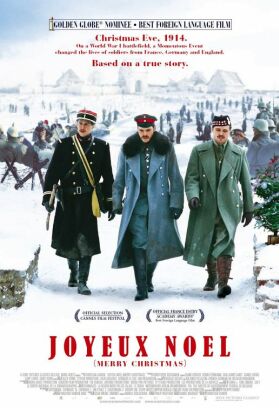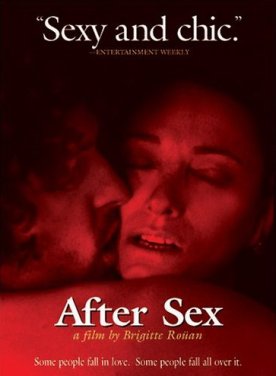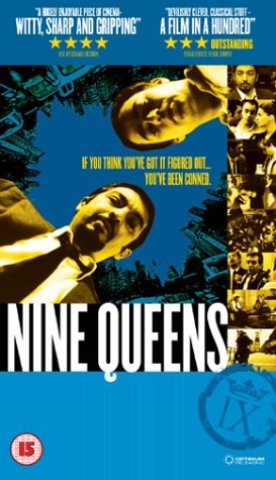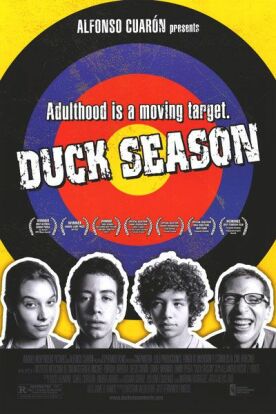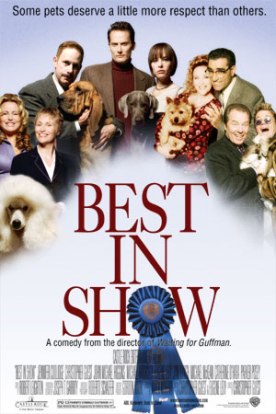Joyeux Noel
Here dead we lie
Because we did not choose
To live and shame the land
From which we sprung.
Life, to be sure,
Is nothing much to lose,
But young men think it is,
And we were young.
A.E. Housman’s little poem about the dead of World War I still has the power to make shivers run up and down the spine. Yet the pathos he evokes depends utterly, it seems to me, on the “Because. . .” clause in the first stanza. In other words, there was a reason why the young men died. Negatively, it was called shame; positively, honor. The sadness of their loss is actually all the greater because Housman accepts this reason calmly, as a given, without comment or criticism.
Joyeux Noel
, Christian Carion’s often moving cinematic account of the true story of the Christmas truce on the Western Front in 1914, is like most subsequent portrayals of that war in ignoring or disparaging the reason for it that Housman presents so dispassionately. On this more recent and now much more common view, our sympathy with the victims of the war ought to be increased by the assumption that the slaughter was (as is often said) “senseless” — for nothing. Instead, it is supposeed to have been the product of wicked or stupid leaders who somehow successfully brainwashed their people into supposing that the enemy was subhuman and deserved to be exterminated without mercy. Whether or not this is a tenable view of the actual war’s origins and history I leave it to others to decide, but simply as a matter of artistic and dramatic judgment in a film like this one I think it a grievous mistake. It forces us to suppose that those who died were fools, blind to the meaninglessness of their sacrifice. Pity for them must be mixed with contempt.
Because at the time both sides tried to suppress any information about the truce as prejudicial to military discipline, we don’t know much about how it acutally happened, and M. Carion’s version is necessarily mostly fictional. But he so arranges things that the brainwashing theory is presupposed. To begin with, he leads off with specimens of the brainwashing in the form of British, French and German schoolchildren reciting as if by rote patriotic spiels all to the effect that one of the other nationalities are devils incarnate. Cut to the arrival of the news that war is declared. Everyone is happy. “At last something is happening in our lives,” says a young Scot called William (Robin Laing). Cut to his death in battle and the inconsolable grief of his brother, Jonathan (Steven Robertson), who refuses to acknowledge in a letter to his mother that he is dead. Palmer (Gary Lewis), a priest from his home town who is serving as a medic with the regiment, tries to console him.
On the German side, Private Sprink (Benno Fürmann), an opera singer in civilian life, is summoned by Crown Prince Friedrich-Wilhelm (Thomas Schmauser) to a chateau behind the lines where he and his Danish fiancée, Anna Sörensen (Diane Kruger), are invited to sing a duet for the brass (singing voices of Rolando Villazón and Natalie Dessay). Rather improbably, Anna persuades Sprink to take her back to the front with him for Christmas eve. In the French trenches, Lieutenant Audebert (Guillaume Canet) is frantic with worry about his wife who is behind the German lines in northeastern France. She had been having a difficult pregnancy in the summer of 1914 and must have given birth by now, but he has had no word from her for months. His father (Bernard Le Coq), a general, is trying to get him sent to the rear, out of the worst of the fighting.
On Christmas eve, the sound of the Scots playing a mournful tune on their bagpipes in the trench opposite inspires Sprink to sing “Silent Night.” Soon the bagpipers are joining in, and Sprink seizes a small Christmas tree, holding it before him as he steps into no-man’s-land. Soon the French and the Scots are out of their trenches as well. The junior officers in charge on this narrow section of the front, Audebert for the French, Gordon (Alex Ferns) for the Scots and Horstmayer (Daniel Brühl) for the Germans, meet to agree on a truce just for Christmas, but the fraternization among the men of both sides has already progressed so far that it looks like getting out of control. The men of both sides attend a mass, said by Palmer, share food and drink and have a game of soccer. The next day, no one wants to be the first to end the truce. The Germans inform the allies that their trenches are about to be shelled and invite them to shelter with them in their trenches. The allies then return the favor.
Eventually, some more senior officers and even a bishop (Ian Richardson) turn up to put a stop to it all and tell the men they’re not being fierce and bloodthirsty enough in ridding the world forever of the foreign devils. There are too many to court martial of those who have learned to take a different view, but the Scottish regiment is disbanded and the men reassigned while the French are sent to Verdun and the Germans to the eastern front. All are reproved for their dereliction of duty, but all remain stubbornly attached to the idea that the truce was a good idea. Just for a moment, they have awakened from their brainwashed torpor and recognized the other side as human. Afterwards they can never quite forget it again. Meanwhile, presumably, all the rest of the numbskulls on the Western front went on killing each other, zombie-like, for the next four years.
Sorry, but I just don’t buy it. M. Carion’s movie is an emotionally powerful glimpse of war’s horror’s being interrupted by an outbreak of humanity, but it would be a lot more powerful if it had more sympathy towards the reason that the warriors were there in the first place. In fact, the film is guilty of the same fault it criticizes in the combatant nations, which is seeing the world in black-and-white. Instead of demonizing one side or the other, it demonizes the leaders of both sides, making the ordinary soldiers on both sides into wholly innocent, if rather pathetic, victims. I, for one, find Housman’s brand of sympathy, which treats the men as fully-functioning moral agents, much more moving.
Discover more from James Bowman
Subscribe to get the latest posts to your email.

